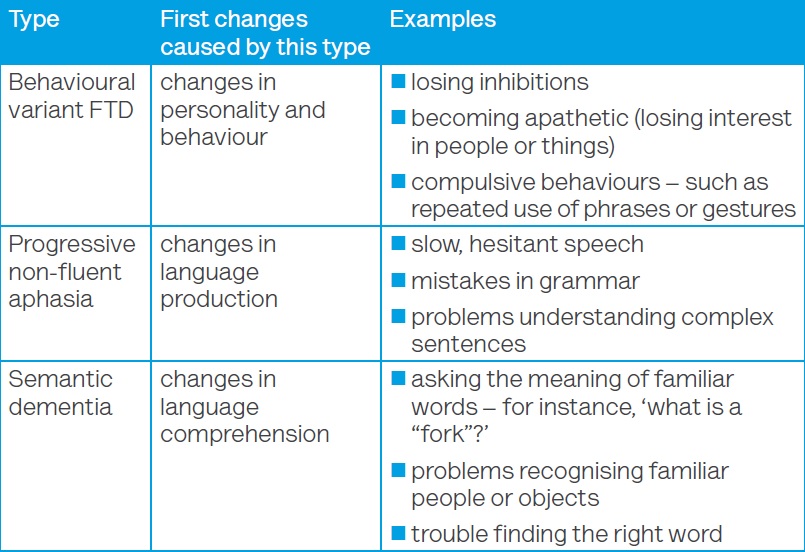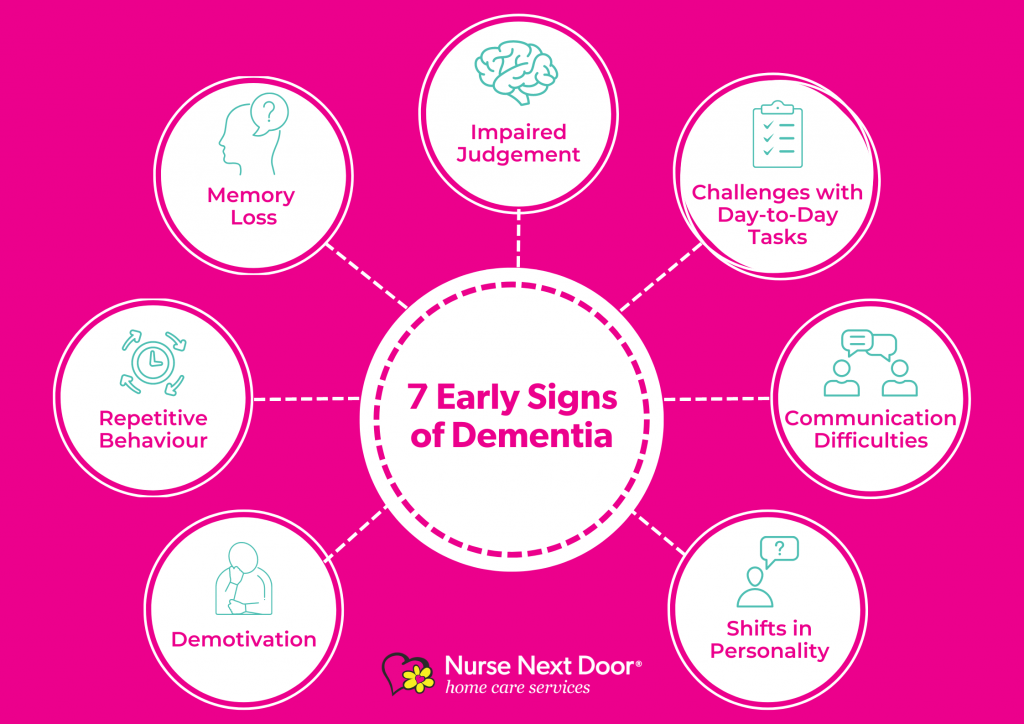Is There Hope for a Cure for Frontotemporal Dementia?
Is There Hope for a Cure for Frontotemporal Dementia?
Blog Article
Comprehending the Impact of Dementia on Day-to-day Live and Caregiving
Dementia influences day-to-day life in extensive ways, influencing not simply those diagnosed but likewise their caregivers. As cognitive decrease proceeds, you may observe adjustments in communication and regular that challenge both celebrations.
The Stages of Dementia and Their Effects on Day-to-day Live
As you navigate the journey of dementia, understanding its stages can substantially impact how you handle every day life. Dementia generally advances via three primary phases: early, middle, and late. In the onset, you might observe occasional memory lapses or trouble discovering the ideal words. This can result in irritation, yet identifying these indications early aids you adjust your regular and seek support.
During the center phase, you'll experience a lot more noticeable cognitive decrease. Daily jobs might end up being difficult, and maintaining your freedom may need adjustments. Utilizing tips and simplifying your atmosphere can aid.
In the late phase, individuals often need considerable assistance with daily activities. Planning for treatment ends up being essential, concentrating on comfort and lifestyle. By recognizing these stages, you're far better furnished to react proactively, guaranteeing you or your enjoyed one can navigate the difficulties with self-respect and poise.

Modifications in Interaction and Social Interaction
Exactly how do modifications in interaction influence your daily communications as dementia progresses? As dementia advancements, you could notice that basic conversations come to be challenging. Words may leave you, or you may struggle to discover the ideal expressions. This can bring about frustration for both you and your enjoyed ones. Nonverbal signs, like gestures or faces, become progressively vital.
You might find it less complicated to link with these ways rather of counting solely on spoken language. Paying attention skills can additionally transform; you could locate it more difficult to follow conversations or remember what was simply said (Early Onset Dementia). This can bring about misconceptions or feelings of seclusion
Urging persistence and producing a supportive setting can assist. Engaging in activities that promote connection, like songs or art, can boost social communications. Remember, keeping partnerships is still feasible; it's almost adjusting to new methods of connecting.
Effect On Daily Routines and Activities
While navigating everyday regimens, you'll likely see that jobs you when completed easily become more tough as mental deterioration advances. Straightforward activities like cooking, dressing, or perhaps showering may require more time and effort. You may find yourself failing to remember steps in familiar routines or struggling to recall where you placed products. This can cause stress not simply for you, but likewise for those around you.
Adapting your setting can help; for instance, identifying things or making use of checklists can streamline tasks. Engaging in repeated, organized activities can likewise provide comfort and a sense of success. Bear in mind, it's fine to ask for help.
Behavioral and emotional Obstacles
Guiding with everyday regimens can cause not simply sensible difficulties, however also psychological and behavioral ones. You might observe modifications in state of mind, such as boosted stress and anxiety or stress, which can come from confusion or difficulty in finishing jobs. As you browse these minutes, it is crucial to recognize that your liked one might reveal their feelings with habits like frustration or withdrawal.
These psychological responses can be unforeseeable and may emerge without caution, leaving you both feeling overwhelmed. You could find that familiar environments or regimens can help minimize stress and anxiety, however maintaining perseverance ends up being substantial. It is crucial to validate their feelings, also if you do not completely understand them.
The Function of Caregivers in Sustaining Individuals With Mental Deterioration
As a caregiver, you play a crucial role in supplying psychological support for people with mental deterioration. Establishing daily treatment regimens can create a sense of stability and convenience, assisting to relieve their anxiety. By understanding their needs and utilizing effective techniques, you can greatly improve their top quality of life.
Emotional Assistance Methods
When caring for somebody with dementia, recognizing the psychological landscape is essential for giving effective assistance. You'll typically locate that persistence and compassion go a lengthy means. Validate their sensations; if they reveal confusion or stress, recognize it without disregarding their feelings. Simple motions, like holding their hand or maintaining eye contact, can create a complacency. Try to engage in activities that they enjoy, as this can trigger joy and connection. Bear in mind to interact clearly and gradually, making use of a calm tone. Urge expression with songs or art, which can function as an effective electrical outlet. Ultimately, do not neglect to take care of your own emotional demands; seeking assistance on your own can enhance your capacity to look after them.
Daily Treatment Routines
Developing daily care regimens is necessary for offering security and comfort to people with dementia, as these routines can help in reducing confusion and anxiety. You can start by describing a regular timetable for dishes, tasks, and remainder. This predictability helps your enjoyed one really feel much more Recommended Site safe and secure and engaged.
Incorporate familiar tasks, like folding laundry or watering plants, which can evoke favorable memories and promote a sense of achievement. Usage aesthetic signs, such as lists or schedules, to direct them with the day.
Be versatile, though; adapt routines as required based upon their state of mind or power levels. Fall Risk. Bear in mind, your patience and understanding are important in maneuvering their changing requirements, guaranteeing they really feel supported and valued throughout their every day life
Producing a Safe and Comfy Living Environment
Producing a safe and comfortable living environment is necessary for individuals with dementia. You'll want to make home security adjustments that lower risks and guarantee knowledge to provide a sense of convenience. By concentrating on these elements, you can assist develop a room that sustains both safety and security and well-being.
Home Safety Modifications
As you navigate the obstacles of dementia, making home safety and security adjustments can significantly boost convenience and safety. Begin by getting rid of tripping hazards like carpets and mess, guaranteeing walkways are clear. Mount grab bars in bathrooms and non-slip mats in the shower to stop drops. Take into consideration utilizing brighter lighting and evening lights to improve exposure, specifically during nighttime. Label important locations, such as the shower room and kitchen, with clear indications to assist with orientation. Safeguard any type of sharp items or poisonous materials unreachable. Furthermore, assess your home's locks and alarms to confirm they're straightforward and give comfort. These adjustments not just promote security but additionally encourage self-reliance, permitting your liked one to really feel even more comfortable in their environment.
Convenience and Familiarity
After ensuring a risk-free atmosphere with needed adjustments, promoting comfort and familiarity is important for people with dementia. Beginning by personalizing their area. Usage acquainted shades, designs, and photographs that evoke satisfied memories. A favorite covering or chair can give a feeling of safety and security. Keep a regular routine to help them feel based and decrease stress and anxiety. Straightforward, acquainted meals can likewise create a soothing ambience. Keep paths clutter-free and clear to prevent confusion. Integrate soft illumination, as bright lights can be disorienting. Think about adding comforting aromas, like lavender, to promote leisure. Participating in acquainted tasks, such as paying attention to songs or gardening, can boost their feeling of belonging, making their living atmosphere a true refuge.
Strategies for Efficient Caregiving and Assistance
While navigating the obstacles of mental deterioration care can feel overwhelming, applying efficient strategies can significantly boost both the caregiver's and the person's everyday experience. Start by developing a routine; predictability assists lower anxiety for both you and your enjoyed one. Usage clear, simple communication-- direct concerns and brief sentences can protect against complication.
Do not fail to remember to care for yourself; timetable breaks and attach with support system. Sharing experiences with others click reference in comparable situations can supply valuable understandings and emotional alleviation.
Last but not least, continue to be client and flexible. Mental deterioration can bring uncertain changes, so adapting your technique is crucial. By utilizing these approaches, you can foster an extra positive environment that benefits both you and your liked one.
Regularly Asked Questions

What Are the Different Sorts Of Mental Deterioration?
You'll locate a number of kinds of mental deterioration, consisting of Alzheimer's, vascular mental deterioration, Lewy body mental deterioration, and frontotemporal mental deterioration. Each kind affects memory and cognitive feature in different ways, so recognizing the distinctions is important for proper diagnosis and care.
Just How Can I Assist Someone With Early-Stage Mental Deterioration?
You can help someone with early-stage mental deterioration by being client, supplying assistance, and motivating them to involve in activities they take pleasure in. Maintaining regimens constant and preserving open interaction can also make a substantial difference in their day-to-day life.
Are There Financial Resources Available for Dementia Care?
Yes, there are economic resources available for mental deterioration care. You can check out entitlement program programs, nonprofit organizations, and insurance policy alternatives. It's likewise smart to speak with neighborhood agencies for specific sources tailored to your situation.
What Legal Factors To Consider Should Caregivers Know?
As a caretaker, look at more info you must consider power of attorney, healthcare proxies, and guardianship regulations. It's necessary to understand the legal civil liberties and responsibilities you hold, guaranteeing your loved one receives suitable treatment and security.
Exactly How Can I Handle Caretaker Stress?
You can handle caretaker tension by prioritizing self-care, looking for support from pals or groups, setting realistic expectations, taking breaks, and practicing leisure techniques. Keep in mind, your health matters just as high as the individual you're taking care of.
Understanding the Influence of Mental Deterioration on Daily Life and Caregiving.
As you navigate the journey of dementia, recognizing its phases can markedly affect exactly how you take care of day-to-day life.While steering day-to-day regimens, you'll likely see that jobs you when completed effortlessly come to be more difficult as mental deterioration progresses.Developing everyday care routines is important for offering security and comfort to individuals with mental deterioration, as these routines can assist decrease complication and anxiousness.While steering the challenges of mental deterioration care can really feel frustrating, executing efficient approaches can significantly improve both the caregiver's and the individual's daily experience.
Report this page